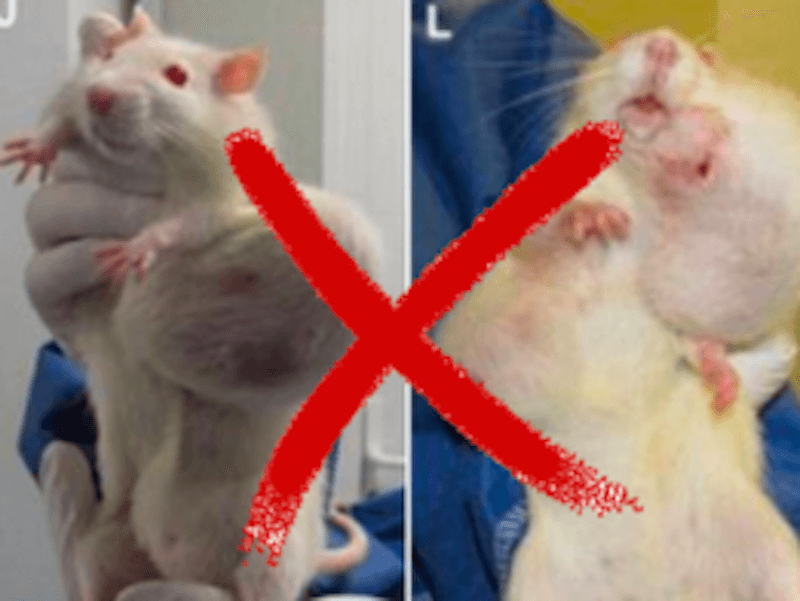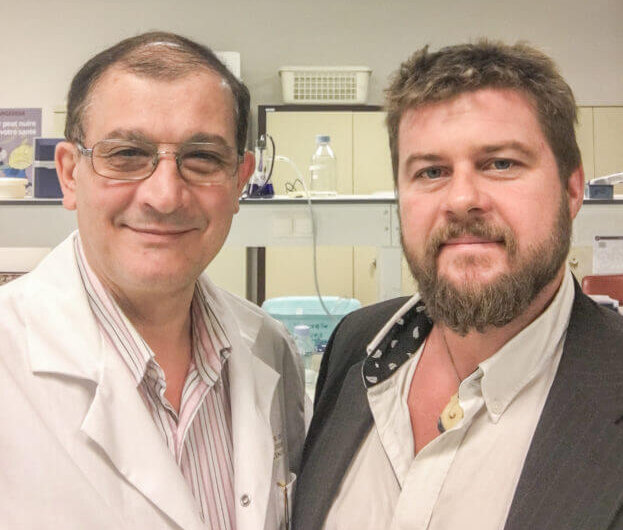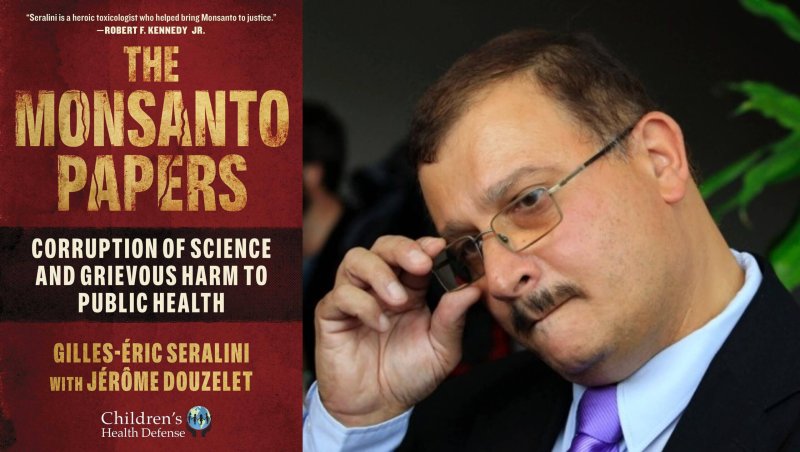Entitled “The Monsanto Papers,” this volume is authored by Gilles-Éric Séralini, with a co-author by French chef and frequent collaborator with Séralini, Jérôme Douzelet. Séralini, of course, is the scientist behind the 2012 paper that at first appeared to draw a link between tumors in rats and glyphosate (the active ingredient behind the popular Roundup herbicide), and was retracted (but eventually republished in a non-peer-reviewed journal).

The book, complete with a forward by anti-GMO activist Vandana Shiva, and cover accolades by anti-glyphosate and anti-vaccine lawyer Robert F. Kennedy, Jr. (more about him later), is a narrative of Séralini’s activities, but mostly focuses on the emails and other documents released to the plaintiff’s law firm by Monsanto. Most of these documents were not entered into the trial by Baum Hedlund, the firm that first successfully sued Monsanto (Kennedy was co-counsel in that case), but have formed the basis of this book. The documents also formed the basis of an earlier tome, also called “The Monsanto Papers,” by former reporter and current research director of US Right to Know, Carey Gillam. Seralini, who has worked as a scientist at the University of Caen, France, since 1991, also was a founder of the French self-described “indepedent research organization,” CRIIGEN. The organization became better known for its anti-GMO stance (as well as scepticism of the vaccines used against COVID-19). Sometime in the past year or so, Seralini, who was president of CRIIGEN, and Douzelet, have disappeared from the masthead of the organization.

As for Kennedy, his organization, Children’s Health Defense, is on the book’s cover, and he is quoted praising the book:
Monsanto made a special project of discrediting and destroying scientists, advocates, and reformers who exposed its corrupt coverup. The most prominent among these was heroic French toxicologist Gilles-Éric Séralini. In 2018, I was fortunate enough to be a part of the legal team that finally brought Monsanto to justice. We relied heavily on Dr. Séralini’s research and counsel to achieve this victory.
According to the publisher:
Monsanto began a series of smear campaigns to discredit Séralini and fellow researchers and intimidate their supporters, while pumping out their own collection of fake research findings and testimonies. These practices were met with huge suspicion, but there was no concrete evidence until, in 2017, Monsanto was ordered to publish tens of thousands of confidential documents in a class-action lawsuit presented by thousands of individuals afflicted with serious illnesses from their use of Roundup. The “Monsanto Papers” that were produced subsequently proved the company’s cynical attempts at a cover-up as well as its fraudulent practices.
After an introduction by Michael Baum (head of Baum Hedlund), Séralini makes his case:
This book tells the story of a scientist who found himself in the midst of a murky and painful international criminal no scientist should have to endure. The is written in light of a two-and-a-half-million-page database US plaintiff lawyers obtained in 2017. Monsanto, now Bayer, one of the largest multinational producers of genetically modified organisms (GMOs), pesticides and pharmaceuticals, was compelled through dogged use of language in the US Federal Court’s order regarding the unsealing of documents to release what became known as the Monsanto Papers.
My name appears in the database 55,952 times on 20,000 pages covering a span of fifteen years, as hundreds of people tried to discredit my research.
Combining Séralini’s narrative with emails and other Monsanto communications obtained via discovery, “The Monsanto Papers” claimed that:
Monsanto orchestrated hit jobs in response to Séralini’s findings in order to preserve Roundup’s market share, or in Monsanto’s terms, to maintain its “Freedom to Operate.” Monsanto decided to maintain its “Freedom to Operate,” notwithstanding awareness among the company’s own scientists that they couldn’t truthfully say Monsanto had established Roundup was not carcinogenic — Monsanto had purposely avoided and cleverly navigated the regulatory testing that would show the Roundup formulation’s carcinogenicity.
The book is published by Skyhorse Publishing, which in 2018 entered into a partnership with major publisher Simon and Schuster, in which the established house would handle distribution (its imprint is also on the book). Skyhorse is known for publishing a number of titles which are controversial to say the least. These include “Plague of Corruption,” co-authored by Judy Mikovits, whose views on a conspiracy behind COVID-19 have been otherwise discredited, and two books—“Callous Disregard” and “Waging War on the Autistic Child”–by Andrew Wakefield, whose now-notorious Lancet paper linking vaccines to autism was retracted (Wakefield was also convicted of fraud and lost his medical privileges in the UK).
For its part, Skyhorse has no problem with publishing these books. “It’s dangerous to think about publishing as a means of disseminating truth to the masses,” Lyons writes in an email reported by the Los Angeles Times. “We publish arguments. Readers should decide what they believe.”
Regardless of what appears to be rather ham-fisted attempts by Monsanto executives to “control” a public relations crisis, glyphosate continues to not cause cancer. Almost immediately upon publication, Séralini’s 2012 paper in Food and Chemical Toxicology was criticized by scientists worldwide for its methodology. Since its publication, retraction and republication in a low-ranked “pay for play” journal, its conclusions (that glyphosate causes tumor growth) have either not been replicated or disproven.
Nineteen independent regulatory agencies worldwide, including the World Health Organization, US Environmental Protection Agency, European Food Safety Authority and Food Safety Commission of Japan, have determined that glyphosate is not carcinogenic. Only one agency, the International Agency for Research on Cancer (IARC), determined that the pesticide was a “probable” carcinogen, using its own hazard-based assessment that no other public health/toxicity organization uses. In addition, studies by the European Union Assessment Group on Glyphosate, found—using longer-term experiments that Seralini and anti-GMO activists accused “pro-GMO” scientists of not conducting—no carcinogenicity from glyphosate.
Without greater context, it’s difficult to tell what the “Monsanto Papers” actually mean. But regardless of attempts to criminalize glyphosate and gain settlement money from class action lawsuits, some juries have ignored what science has not: that nobody has credibly connected glyphosate to cancer.
Andrew Porterfield is a writer and editor and agriculture editor of the Genetic Literacy Project. He has worked with numerous academic institutions, companies and non-profits in the life sciences. BIO. Follow him on Twitter @AMPorterfield































